Search Definitions
Browse Content (p. 252)
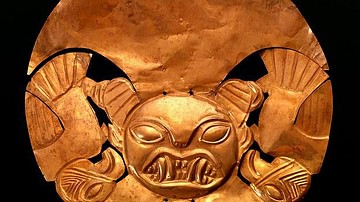
Definition
Moche Civilization
The Moche civilization (also known as the Mochica) flourished along the northern coast and valleys of ancient Peru, in particular, in the Chicama and Trujillo Valleys, between 1 CE and 800 CE. The Moche state spread to eventually cover an...
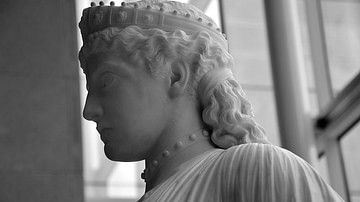
Definition
Semiramis
Semiramis is a legendary queen thought to based on the historical Sammu-Ramat (r. 811-806 BCE) the queen regent of the Assyrian Empire who held the throne for her young son Adad Nirari III until he reached maturity. She is also known as Shammuramat...
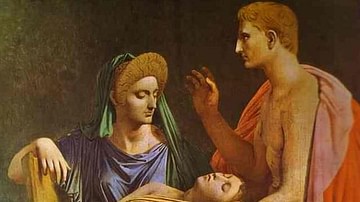
Definition
The Aeneid
The Aeneid, written by the Roman poet Virgil (70-19 BCE), is a twelve-book-long epic poem that describes the early mythology of the founding of Rome. The eponymous hero Aeneas, a Trojan prince and son of Venus, faces trials and tribulations...
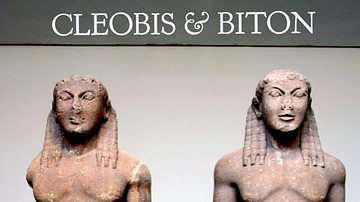
Definition
Cleobis and Biton
Two over-life-size Archaic kouroi (6.5 ft / 2 m) are housed at the Delphi Museum, and date to c. 580 BCE. Their names (Cleobis and Biton) are actually written on their bases, and the sculptor is given as Polymides of Argos: such inscriptions...

Definition
Aristippus of Cyrene
Aristippus of Cyrene (l. c. 435-356 BCE) was a hedonistic Greek philosopher who was one of Socrates' students and founder of the Cyrenaic School of philosophy which taught that pleasure and the pursuit of pleasure was the highest good and...

Definition
Mesopotamian Naru Literature
Mesopotamian Naru Literature was a literary genre, first appearing around the 2nd millennium BCE, which featured a famous person (usually a king) from history as the main character in a story that most often concerned humanity's relationship...

Definition
Spartacus
Throughout history - both ancient and modern - those bound in chains have fought to free themselves from their oppressors. As with most civilizations - Assyrian, Greek and even American - slaves in ancient Rome were not considered citizens...

Definition
Antisthenes of Athens
Antisthenes of Athens (l. c. 445-365 BCE) was a Greek philosopher who founded the Cynic School. He was a follower of Socrates and appears in Plato's Phaedo as one of those present at Socrates' death. He is also one of the primary interlocutors...
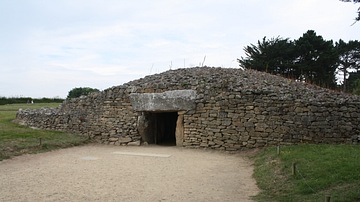
Definition
Locmariaquer
Locmariaquer is a Stone Age site in north-west France distinguished by its two large stone tombs and massive granite standing stone or menhir. The monumental structures, all built within metres of each other, were built in the 5th millennium...

Definition
Gorgo of Sparta
Gorgo was the queen of the Greek city-state of Sparta, daughter of the king Cleomenes (r. 520-490 BCE), wife of King Leonidas (r. 490-480 BCE), and mother of King Pleistarchus (r. 480-458 BCE). Her birth and death dates are unclear as women...